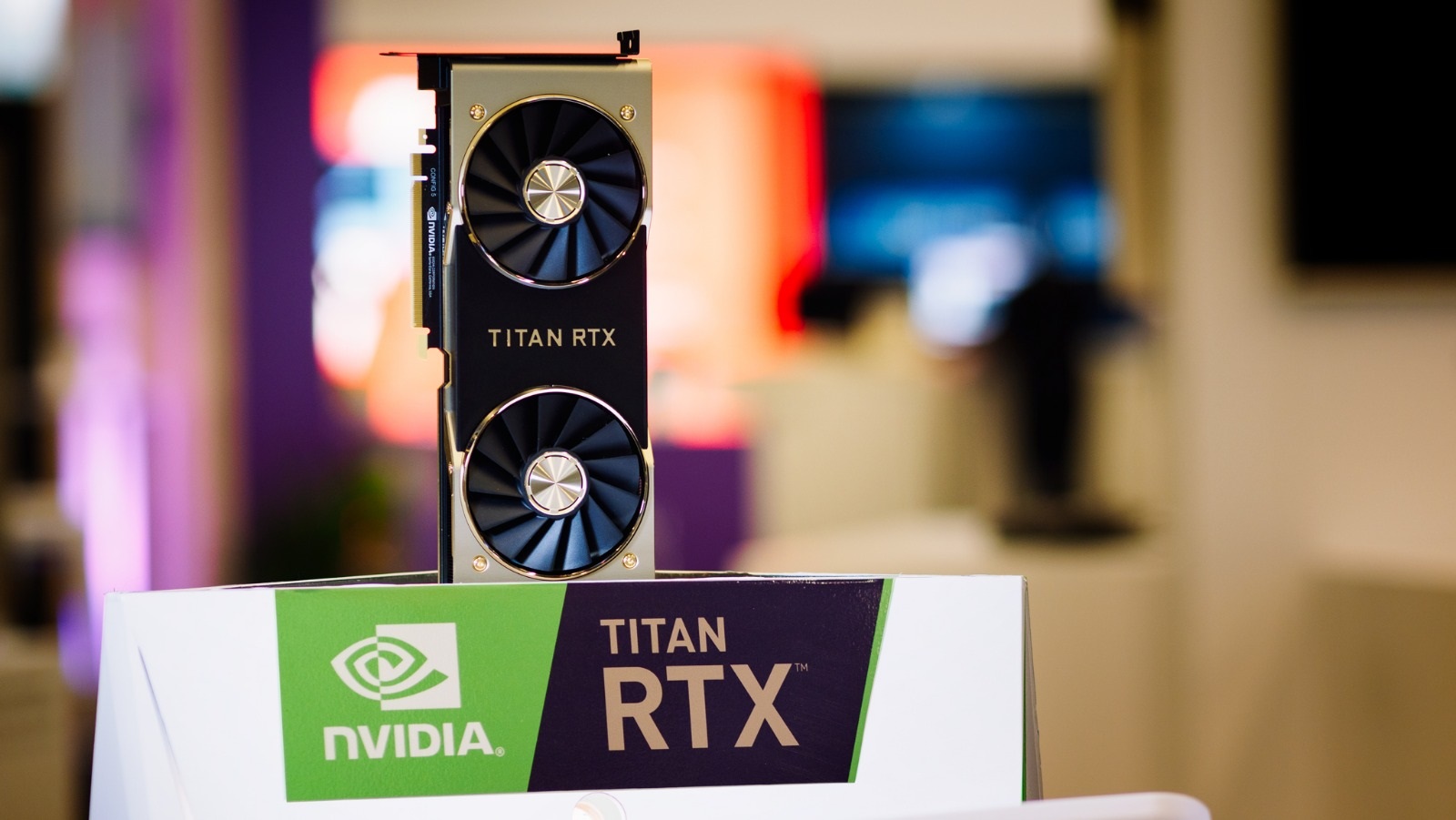Nvidia reveals Titan RTX, 'the world's most powerful desktop GPU' (original) (raw)

Nvidia has revealed the RTX Titan, its flagship graphics card which the company claims is the "the world's most powerful desktop GPU".
Following a number of teases on social media that suggested the launch would be soon, Nvidia has disclosed that the Titan RTX will go on sale later in December at a breathtaking price of 2,499(around£2,000,AU2,499 (around £2,000, AU2,499(around£2,000,AU3,400).
Announcing NVIDIA #TITANRTX: the world’s most powerful desktop GPU. Adds massive performance for AI research, data science and creative applications - on display this week at #NeurIPS2018. Learn more: https://t.co/sXGWPjjgNu pic.twitter.com/4RYVbpcXQQDecember 3, 2018
Titanic performance
That's a huge asking price, even by Nvidia's standards when it comes to its Titan cards, which have been pitched as the best of the best when it comes to its desktop GPUs.
The RTX 2080 Ti, which up until now was Nvidia's most powerful consumer graphics card, retails for 1,199(£1,099,AU1,199 (£1,099, AU1,199(£1,099,AU1,899) – that's a lot of money as well, so the Titan RTX will need to deliver a lot of firepower in order to justify this roughly doubling of the price.
According to Nvidia, the Titan RTX will come with:
- 576 multi-precision Turing Tensor Cores, providing up to 130 teraflops of deep learning performance.
- 72 Turing RT Cores, delivering up to 11 GigaRays per second of real-time ray-tracing performance.
- 24GB of high-speed GDDR6 memory with 672GB/s of bandwidth – 2x the memory of previous-generation Titan GPUs – to fit larger models and datasets.
- 100GB/s NVIDIA NVLink can pair two Titan RTX GPUs to scale memory and compute.
- Performance and memory bandwidth for real-time 8K video editing.
- VirtualLink port provides the performance and connectivity required by next-gen VR headsets.
On paper, then, it looks like the Titan RTX will be a very solid performer, but we'll have to wait until we get our hands on one to see if it justifies that incredibly high price tag.
It's also interesting that Nvidia references "next-gen VR headsets" – will we perhaps see a new HTC Vive or Oculus Rift soon as well?
Sign up for breaking news, reviews, opinion, top tech deals, and more.
- The best graphics cards 2018: all the top GPUs for gaming
Matt is TechRadar's Managing Editor for Core Tech, looking after computing and mobile technology. Having written for a number of publications such as PC Plus, PC Format, T3 and Linux Format, there's no aspect of technology that Matt isn't passionate about, especially computing and PC gaming. He’s personally reviewed and used most of the laptops in our best laptops guide - and since joining TechRadar in 2014, he's reviewed over 250 laptops and computing accessories personally.